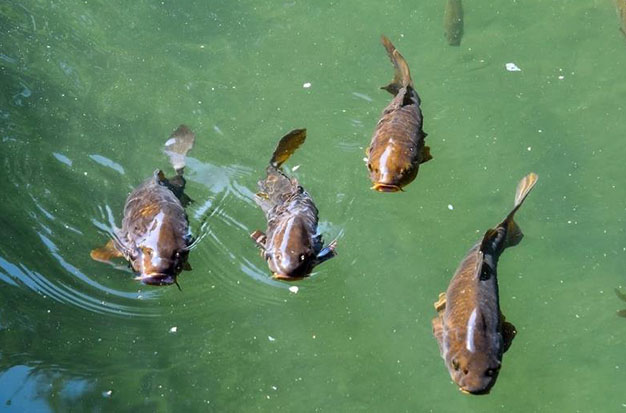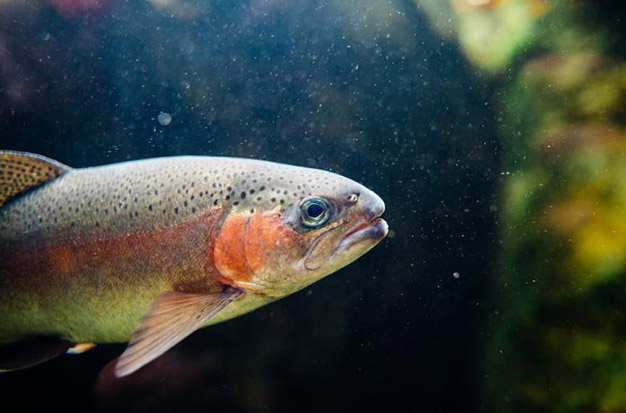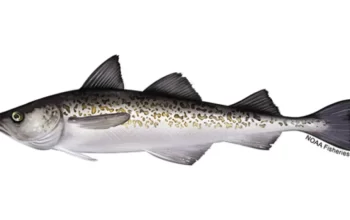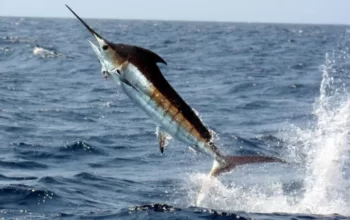Freshwater dolphin fish are uncommon in the trade and extremely difficult to identify. This common name covers a number of distinct species, and each of them has a distinctive personality. Several species include Mormyrus Longirosis, Mormyrus Kannume, Mormyrus Lacerda, Mormyrus Rume, and Mormyrus Tapirus. Though some may be more gregarious than others, their level of care is generally similar. However, I will share what I have learned because there is still a lack of information about this fish.
Table of Contents
Freshwater Dolphin Fish Size
The largest Freshwater Dolphin Fish can reach lengths of up to 30 inches (75 cm) and weights of up to 22 pounds (10 kg). The size of male and female fish is the same, though when carrying eggs, females may appear larger in the middle.
Freshwater Dolphin Fish Tank Size
Freshwater dolphin fish can initially be kept in smaller tanks, but as they grow, they will eventually need a larger tank. The Freshwater Dolphin Fish can be kept in a 20-gallon tank when it is purchased small; most sellers advise a 55-gallon tank, but as the fish grows, the tank size will need to increase. By the time the fish reaches 10-inches, they will need at least a 100-gallon tank. In 250-gallon tanks, keepers have found that their freshwater dolphin fish are happiest, especially if other fish are also housed there. Because they are active swimmers, they require plenty of space for movement.
Freshwater Dolphin Fish Lifespan
For freshwater dolphin fish, there is no known exact lifespan. The average life span of a freshwater dolphin fish is between 6 and 10 years, though one source gives a lifespan of 15. It can be assumed that the Freshwater Dolphin Fish has a lifespan similar to that of Mormyrus Rume based on research done on the lifespan of this species in the wild, which found the average fish lived to 6 years. The fish may live longer in captivity if kept in ideal conditions.
Feeding Freshwater Dolphin Fish
Individuals’ diets are probably going to vary, but I discovered that worms should be a staple. Although they are accessible and useful, bloodworms shouldn’t be your only source of food. It is best to have a variety, which should include larvae, grindle worms, white worms, and black worms. They seemed to enjoy the clean earthworms I gave them as a treat, though they might be too big for smaller species. Although everything is perfect, you run the risk of spreading disease in this situation. It is advised to grow your own worms or purchase them from a reputable supplier to reduce the risk of contracting a disease. The crustacean’s brine and Mysis, as well as daphnia, are also acceptable to dolphins.
Freshwater Dolphin Fish Care
Maintaining freshwater dolphin fish can be challenging, so it’s crucial to keep them in the right water conditions. The Freshwater Dolphin Fish prefers temperatures between 77°F and 82°F. Freshwater dolphin fish prefer a temperature of 78°F, though they can survive in up to 82°F. The fish became noticeably more agitated and began to breathe more heavily when kept at higher temperatures. It’s best to maintain the tank at a lower temperature range to keep them the happiest.
Freshwater dolphin fish require a pH range of 6 to 8.5 and 8.0, with the consensus being that they do best from 6.5 to 7.2. The most crucial aspect is to maintain a constant pH level. Maintaining a stable pH level is essential to keeping fish healthy over the long term because fish behavior changes significantly if pH levels are off slightly, similar to how higher water temperatures affect it. To keep the water in perfect condition, routine water changes should be performed. The Freshwater Dolphin Fish is very sensitive to changes if it is smaller than 10 inches, but many keepers have noticed that fish larger than 10 inches become more resilient, tolerant of changes in tank conditions, and able to tolerate less frequent water changes. The use of chemicals is not advised when maintaining the aquarium’s water quality. Being a scaleless species, the freshwater dolphin fish is extremely sensitive to salt, drugs, and water treatments.

Freshwater Dolphin Fish And Disease
Dolphin fish living in freshwater are vulnerable to parasites and diseases, especially worms and protozoa. When fish are first purchased, many keepers report having to nurse them back to health due to a combination of parasites from the wild and new diseases acquired during captivity. Due to the Freshwater Dolphin Fish’s resistance to drugs and water treatments, this can be very challenging to treat. Keepers reported that with the right care and water conditions, their fish were able to heal themselves. Smaller fish won’t likely be as resilient, so it’s best to buy ones that are at least 6 inches long to prevent ill health and even death.
Do You Avoid Doing Anything?
Mormyrid fish lack scales, just like other electrical fish. This means that they may be very sensitive to and intolerant of both salt and medications. Because of this, it’s even more crucial to quarantine not only your new dolphin but also any potential tankmates, as the disease can be very challenging to treat if it does manifest. Medications can be used in some cases, but copper-containing medications must be completely avoided. Stay tuned as I will be writing a detailed section on the different types of medications and which ones are safe for scaleless fish. Nevertheless, the best type of treatment is prevention.
Metals should also be kept away. This includes buffers that might contain materials like iron and anything else that could potentially leach metal into the water (like craft store fake plants). Many of the buffers in your plants might contain iron and other dangerous ingredients. Choosing plants with high demands who may require these products is a bad idea. I’ve had success using Seachem Flourish Tabs safely so far, but always use the product as directed.
The use of magnets in dolphin tanks has also been a topic of discussion. Although I have not found any concrete evidence to support its harmful effects on dolphins (I will update this if this ever changes), I can see how magnets might be a problem. Mormyrid fish use electrical pulses to navigate, so the presence of a magnet could likely confuse them and cause other problems. Despite the fact that I haven’t received confirmation on this matter, I’ll err on the side of caution and advise you to do the same. What would therefore contain a magnet in your aquarium? Your magnet glass cleaners, a few powerheads, a few thermometers, and a few pumps. Before use, carefully inspect any equipment you plan to place in the aquarium directly (external filters are exempt). Although I continue to be wary of magnets at the moment, using a magnet glass cleaner is not prohibited. The dolphins didn’t seem overly alarmed when I used a small one to clean the glass; I just remembered to take the magnet out when I was done.
Are Dolphin Fish Aggressive In Freshwater?
Because they can be aggressive, freshwater dolphin fish should be kept alone, in larger groups, or with other fish who won’t mind them being bullies. They have a tendency to be shy when young, but as they get older and bigger, they turn into very aggressive fish that will harass other fish. Because the freshwater dolphin fish is prone to pursuing smaller fish and intimidating bigger fish with its cunning, many people think it should be kept alone.
When young, freshwater dolphin fish can be kept together in larger groups of their own species because they are found in shoals in the wild, but as they get older, they must be kept apart because they will begin to pick out the smaller, weaker fish in the group. Some keepers have had success keeping them with fish that are less agitated or with fish that are similar to those in their natural environment. While it lacks teeth and probably won’t cause much physical harm, any fish added to a freshwater dolphin fish aquarium should be closely watched for bullying as its persistent pestering of other fish can cause other fish significant stress.
What do Stores offer For Sale Freshwater Dolphin Fish?
In the fish trade, freshwater dolphin fish are uncommon, but occasionally one will be found in a live fish shop. Due to the prevalence of misidentification, it becomes challenging to pinpoint precisely which species is being sold. They are sold by live fish suppliers online, and they start at a price that is quite variable at $15.00 up to $160 for a single fish.




